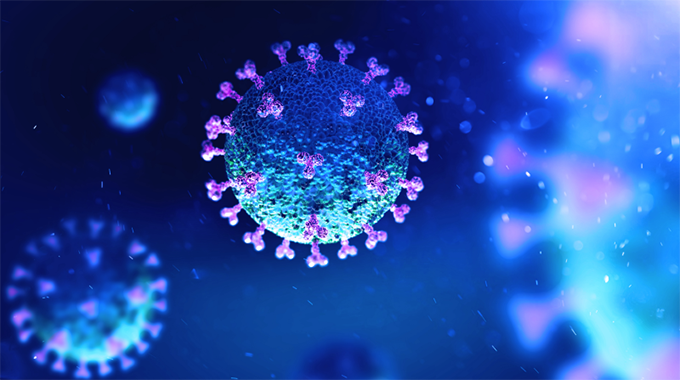Does estrogen protect against severe COVID-19?

Stella Miranda
The connection between a higher level of estrogen and a lower risk of mortality from COVID-19 continues to be of interest to the scientific community.
A recent study takes a fresh look at the connection between the hormone and COVID-19 outcomes. Their findings appear in the journal BMJ Open.
The study’s senior author, Dr. Anne-Marie Fors Connolly, a clinical research fellow at Umeå University, told Medical News Today:
“The results of this particular study showed that postmenopausal women taking estrogen had a lower risk of death from COVID-19 than those who were not taking supplemental estrogen. It’s an intriguing result that definitely warrants further study. For example, earlier research investigating possible treatments for COVID-19 also cited estrogen as a potential therapeutic agent.”
A previous study found that females have a lower risk of severe SARS-CoV-2 infection.
The team also found that older females who were taking or had taken hormone therapy were less likely to have the infection than age-matched females who had never taken hormone therapy.
These and similar findings have led some scientists to ask whether estrogen could play a role in future treatment options.
Estrogen is a hormone associated with the female reproductive system. As menopause begins, the ovaries produce less estrogen.
The new study analyzed national data from the Swedish Public Health Agency, Statistics Sweden, and the National Board of Health and Welfare. The researchers collected the data from February 4 through September 14, 2020.
Research findings
The data came from 49,853 women who had received a COVID-19 diagnosis during this time frame. Of those, 16,693 were aged 50–80 years.
The researchers focused on a group of 14,685 women with at least one positive SARS-CoV-2 test. Among this group, 227 women were taking estrogen blocker drugs to prevent cancer recurrence, and 2,535 were taking hormone replacement therapy to reinforce estrogen levels. The remaining 11,923 women were taking no treatments to influence hormone levels and acted as a control group.
After adjusting for risk factors, including age, income, and medical history, women receiving estrogen had 53 percent lower odds of dying from COVID-19, compared with women who did not receive the hormonal treatment.
Participants taking estrogen blockers were twice as likely to die from COVID-19 in the initial analysis. However, after the team adjusted the data for other factors, this difference was not statistically significant.
As expected, the researchers also found that age represented an important factor in COVID-19 survival: Mortality odds increased by 15 percent with every year of age. Similarly, each additional medical condition increased the mortality odds by 13 percent.
The results also showed that individuals with a higher income had an advantage. Women from the lowest income households were three times more likely to die from COVID-19 than those from the highest income households.
Clinical implications
From a clinical perspective, these findings could shed light on future opportunities for treatment. Dr Amy Roskin, chief medical officer at The Pill Club, told MNT:
“The results of this particular study showed that postmenopausal women taking estrogen had a lower risk of death from COVID-19 than those who were not taking supplemental estrogen. It’s an intriguing result that definitely warrants further study. As a clinician, I’m interested in more validation of these results, especially from a prospective, randomized study.”
The specific mechanisms behind the findings are not yet clear.
“One theory is that estrogen has a protective role for COVID-19 in women. The authors thought there might be a direct effect on viral reproduction, or estrogen might modulate, downregulate, gene expression to reduce mortality,” said Dr Roskin.
Although the study did not include data about dosages of hormone replacement therapy or estrogen blocker drugs, the researchers conclude that increasing estrogen levels may help alleviate COVID-19 severity in postmenopausal women.
Conclusion
Dr Fors Connolly concluded: “Our study is an observational study, therefore currently there should not be any clinical implications, as of now. A clinical trial is needed to determine there is an effect.”
“Interestingly,” she added, “there is an ongoing clinical trial, and our study supports the potential beneficial effect of estrogen supplementation against severe COVID-19. It will be very interesting to see what this trial finds.”- Medical News Today
- Written by Stella Miranda on March 14, 2022 — Fact checked by Jessica Beake, Ph.D.









Comments